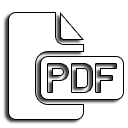R RELATIONSHIP OF HEALTH LOCUS OF CONTROL TO THE COMPLIANCE LEVEL OF GYMIC CONTROL IN PATIENTS WITH TYPE 2 DIABETES.
DOI:
https://doi.org/10.33859/jni.v3i1.208Keywords:
compliance, diabetes mellitus, glycemic control, health locus of controlAbstract
Background: Diabetes mellitus is a chronic disease caused by the pancreas not being able to produce enough insulin for the body. One of the pillars of diabetes mellitus treatment is glycemic control with a health locus of control which is rarely realized in the process control.
Objective: To determine the relationship between health locus of control and the level of glycemic control compliance in patients with type 2 diabetes mellitus at the Banjarmasin Terminal Health Center.
Method: his study uses quantitative methods and uses a cross sectional study approach. The number of samples as many as 73 people with purposive sampling technique.
Result: Spearman's rho correlation test results with = 0.05. From the results of the Spearman's rho statistical test, a significant value of 0.198> 0.05 showed that there was no relationship between health locus of control and the level of glycemic control compliance.
Conclusion: Compliance is not only influenced by health locus of control but also influenced by other factors such as medication administration, diet, physical activity or foot care.
Downloads
References
Adhanty, S., Ayubi, D., & Anshari, D. (2021). Hubungan Health Locus of Control dengan Kepatuhan Diet pada Pasien Diabetes Mellitus Tipe 2 di RSUD Kota Depok Tahun 2020. Perilaku Dan Promosi Kesehatan: Indonesian Journal of Health Promotion and Behavior, 3(1), 8–18. Ardeliani, I. G. A. I., Ratnasari, P. M. D., & Yuliawati, A. N. (2021). Analisis Hubungan Kepatuhan Pengobatan Terhadap Kontrol Glikemik Pasien Diabetes Melitus Tipe 2 Di Instalasi Rawat Jalan Rumah Sakit “X” Buleleng. Jurnal Ilmiah Ibnu Sina, 6(2), 331–340. Ariani, N. L. S. N. (2018). Hubungan Diabates Self Care Management Dengan Kontrol Glikemik Pada Pasien Diabetes Melitus Tipe 2 Di Upt Kesmas Gianyar 1 Tahun 2018. Poltekkes Denpasar. Faizah, N., Hani R, M. I., & Nofalia, I. (2020). HubunganTingkat Kepercayaan dan Persepsi Dengan Tingkat Kepatuhan Kontrol Pada Pasien Diabetes Melitus Tipe 2 [STIKes Insan Cendekia Medika Jombang]. http://repo.stikesicme-jbg.ac.id/id/eprint/3921 [Diakses: 14/November/2021]Haskas, Y., & Suryanto, S. (2019). Locus of Control: Pengendalian Diabetes Melitus Pada Penderita Dm Tipe 2. Jurnal Riset Kesehatan, 8(1), 13. Jayanti, K. D., & Fitriyani, N. (2022). Gambaran Karakteristik Pasien Diabetes Melitus di Puskesmas Semen Tahun 2021 Diabetes Melitus Patients Characteristic at Semen Health Center in 2021. Jurnal Riset Pengembangan Dan Pelayanan Kesehatan, 1(1), 1–8. Katuuk, M., & Gannika, L. (2019). Hubungan Health Locus of Control Dengan Kepatuhan Terapi Insulin Pada Pasien Dm Tipe Ii Di Rsu Gmim Pancaran Kasih Manado. Jurnal Keperawatan, 7(1). Maimunah, S., Asrinawaty, & Rahman, E. (2020). Terhadap Kejadian Diabetes Militus Type Ii Di Rsud Dr . H . Moch Ansari Saleh Banjarmasin Tahun 2020. EPrints UNISKA, 1–10. Monica, W., & Hadi, Z. (2020). Hubungan Keturunan , Kebiasaan Makan Dan Gaya Hidup Dengan Penyakit Diabetes Melitus ( Dm ) Di Wilayah Kerja Puskesmas Sungai Mesa Kota Banjarmasin Tahun 2020. EPrints UNISKA, Dm. Nugroho, S. L., Anggorotomo, W., & Rafie, R. (2021). Lama Menderita Dan Kontrol Glikemik Berhubungan Dengan Penurunan Fungsi Kognitif Pada Pasien Diabetes Melitus Tipe 2. Jurnal Kebidanan Malahayati, 7(3), 495–501. Ratnasari, P. M. D., Ardeliani, I. G. A. I., & Yuliawati, A. N. (2021). Analisis Hubungan KepatuhanPengobatan Terhadap Kontrol Glikemik Pasien Diabetes Melitus Tipe 2 Di Instalasi Rawat Jalan Rumah Sakit “X” Buleleng. Jurnal Ilmiah Ibnu Sina, 6(2), 331–340. Saibi, Y., Romadhon, R., & Nasir, N. M. (2020). Kepatuhan Terhadap Pengobatan Pasien Diabetes Melitus Tipe 2 di Puskesmas Jakarta Timur. Jurnal Farmasi Galenika (Galenika Journal of Pharmacy) (e-Journal), 6(1), 94–103.Sary, E. W., & Maulida, R. (2019). Pengaruh Pemberian Rebusan Labu Siam (Sechium edule) Terhadap Penurunan Kadar Gula Darah Pada Penderita Diabetes Melitus Tipe II Di Wilayah Kerja Puskesmas Cempaka Banjarmasin. Global Health Science, 4(4), 325–331. Saswati, N., Sutinah, S., & Dasuki, D. (2020). Pengaruh Penerapan Hipnosis Lima Jari untuk Penurunan Kecemasanpada Klien Diabetes Melitus. Jurnal Endurance, 5(1), 136. Susanti, R. D. (2018). Hubungan Motivasi dan Health Locus Of Control dengan Kepatuhan Diet Penderita Diabetes Melitus (Vol. 53, Issue 9) [Universitas Ailangga]. Susilawati, E., Prananing, R., Hesi, P., & Soerawidjaja, R. A. (2021). Hubungan Efikasi Diri terhadap Kepatuhan Perawatan Kaki Diabetes Melitus pada Masa Pandemi The Relationship betweenSelf Efficacy and Diabetes Mellitus Foot Care Compliance in Pandemic Period. Falatehe Health Journal, 8(3), 152–159. Trisnadewi, N. W., Adiputra, I. M. S., & Mitayanti, N. K. (2018). Gambaran Pengetahuan Pasien Diabetes Melitus (Dm) Dan Keluarga Tentang Manajemen Dm Tipe 2. Bali Medika Jurnal, 5(2), 165–187.Watta, R., Masi, G., & Katuuk, M. E. (2020). Screening Faktor Resiko Diabetes Melitus Pada Individu Dengan Riwayat Keluarga Diabetes Melitus Di Rsud Jailolo. Jurnal Keperawatan, 8(1), 44.Wahyuni, K. I., Prayitno, A. A., & Wibowo, Y. I. (2019). Efektivitas Edukasi Pasien Diabetes Mellitus Tipe 2 Terhadap Pengetahuan dan Kontrol Glikemik Rawat Jalan di RS Anwar Medika. Jurnal Pharmascience, 6(1), 1.Wibisana, E., H, H. W., & Chotimah, S. (2021). Hubungan Tingkat Pengetahuan Dengan Kepatuhan Pelaksanaan Diet Pada Pasien Diabetes Mellitus. Jurnal Ilmu Keperawatan Indonesia (JIKPI), 2(1), 8–13.
Downloads
Published
How to Cite
Issue
Section
License
Copyright (c) 2022 Journal of Nursing Invention

This work is licensed under a Creative Commons Attribution 4.0 International License.


















